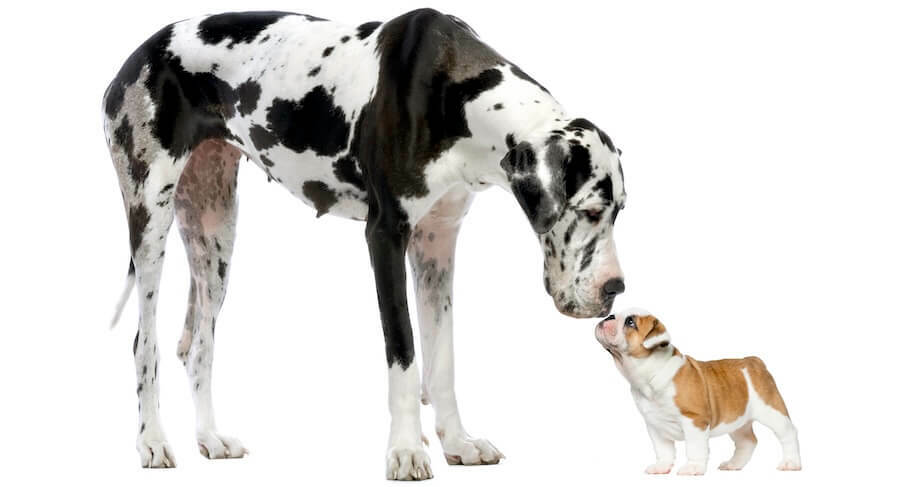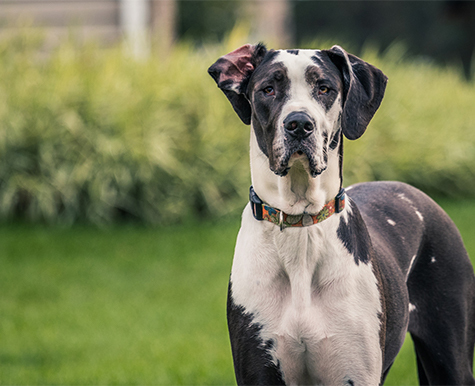






Great Dane
 Overview
Overview
Overview of Great Dane
If there's something spooky in your neighborhood, you might want to call a Great Dane. These gentle giants were once valued for their ghost-banishing abilities and protection against evil spirits. America's favorite ghost hunter, Scooby Doo, is a Great Dane after all! Their supernatural abilities aren't the only thing to set these dogs apart; with paws as big as human hands, they are the largest lap dogs of all time - the tallest dog ever recorded is a Great Dane named Zeus at 7ft 4inch! Often nicknamed the Apollo of the dogs, this breed is thought to have been around for more than 400 years and is descended from mastiff-like dogs to hunt boar and guard property. The Great Dane's name came to be in the 1700s when a French naturalist travelled to Denmark and saw a leaner, more greyhound-looking dog which he named the Grand Danois, that later became the Great Danish Dog. The name caught on, even though Denmark had nothing to do with developing the breed! If you’ve spent any time with a Great Dane, you’ll know that they prefer the couch to combat; their fighting instincts have largely been bred out. These regal pooches come in 6 coat colors and range between 120-200 lbs.
Common Health Conditions & Recommendations for Great Dane
Gastric Dilatation - Volvulus (Bloat):
GDV is the #1 condition to affect Great Danes and other giant breed dogs. It can happen when they do not wait long enough between meal times and play times. Air can accumulate in the abdomen and cause the stomach to flip, blocking the spleen and pancreas as well. Feeding your Great Dane several small meals a day and waiting an hour after meals before/after exercise can help prevent bloat.
Recommendations for Gastric Dilatation - Volvulus (Bloat) in Great Dane Dogs:
Common Health Conditions & Recommendations for Great Dane
Dilated Cardiomyopathy (DCM):
Great Danes can be especially prone to suffering from dilated cardiomyopathy, or DCM - a condition where the heart becomes enlarged and weakened and has difficulty pumping blood all over the body.
Recommendations for Dilated Cardiomyopathy (DCM) in Great Dane Dogs:
Common Health Conditions & Recommendations for Great Dane
Skin Cancer:
Thin-coated breeds like the Great Dane can be more prone to developing skin irritations and skin cancer as their short coat does not offer much protection from the elements.
Recommendations for Skin Cancer in Great Dane Dogs:
 Personality
Personality

The Great Dane is a beautiful family pet and is gentle with children, but like any dog, start training early so that your giant pooch is manageable when they reach their full size (which may be taller than you!) Despite their large stature, Great Danes make wonderful apartment dogs because their exercise requirements are generally lower than many smaller breed dogs. But do keep in mind that if you want a Great Dane, things can cost more - food, clothing, veterinary bills etc so be prepared. Despite their docile nature, Great Danes are alert home guardians that can hold their own if confronted with an intruder. Generally living between 7-10 years, these super-sized pooches are extremely attached to their humans and will want to sit in your lap no matter how big they get!

 USD
USD
 Canadian Dollars
Canadian Dollars
